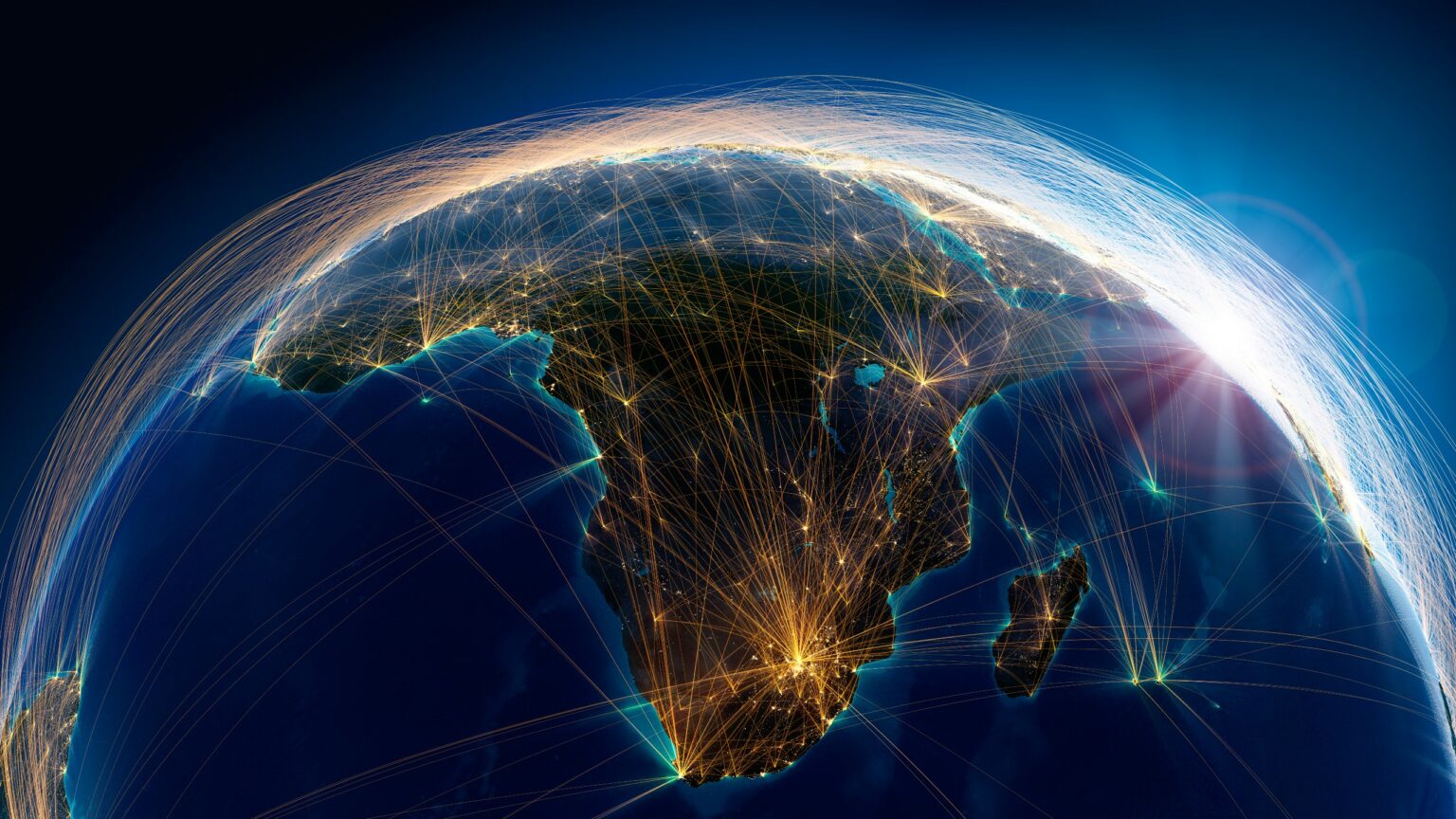African technology startups are cozying up to AI. The technology brought to the fore by the introduction of ChatGPT last year is trending around the world.
In parts of Africa – a continent that often lags behind everyone else in embracing new tech – AI adoption is growing steadily, led by startups in South Africa, Kenya, and Nigeria.
Companies in the three countries account for more than 90% of the total foreign venture capital money coming into Africa, according to the African Development Bank.
Also read: ChatGPT Creator Plans ‘App Store’ for Custom AI Chatbots
AI changing businesses in Africa
Until recently founders in Africa have tended to focus on enterprise AI apps, but a number of emerging companies are starting to leverage AI to engage directly with the everyday user. Here is a peek into six AI-driven African startups.
GreatFit AI
GreatFit AI, a South African company founded by Shai Unterslak, claims to be the first hiring software to use large language models (LLM)s – the kind of tech behind ChatGPT – to test software engineering candidates for soft skills and culture-fit.
Unterslak says that over 50% of mis-hires can be attributed to “skills outside of hard technical skills.” Generative AI provides an opportunity to gather more data points on candidates in a “fair and engaging manner,” he added.
The company’s flagship product, GreatFit Chat, lets candidates guide a chatbot through a coding problem. In doing so, candidates get the opportunity to show off their written communication and mentorship capabilities.
‘We are absolutely at an inflection point in terms of what artificial intelligence can achieve both for individuals and for companies,” said Unterslak. His goal is to use large language models to fix what he calls “bias in recruitment.”

Aerobotics
Another South African startup Aerobotics, is using artificial intelligence to change agriculture, Africa’s number one employer, accounting for almost 45% of total employment as of 2020.
The platform uses aerial imagery, machine learning, and advanced analytics to help farmers identify crop stress, nutrient deficiencies, and other factors that can affect plant health.
Aerobotics also offers a technology that allows growers to size their fruit. By setting up their farms on the platform, farmers can immediately begin sizing their fruit using the firm’s AI system, which is said to measure fruit as small as 10mm.
With the help of our AI technology, which transforms your smartphone into a digital calliper, grape producers can now take images and compile data on fruit sizes 📱🍇 Request a demo here to lay a solid foundation for the harvest season: https://t.co/McUFHfwwkp pic.twitter.com/3WY12F9Ub1
— Aerobotics (@aerobotics_intl) March 17, 2023
Farmers can use this data to allocate fruit to different markets based on size and plan their harvest in advance. Fruit marketers can also benefit from knowing the expected peak counts at harvest time, allowing them to optimize their export programs early in the season, it said.
Since its launch, Aerobotics’ technology has sized over 2 million pieces of fruit. The company, originally founded in Cape Town, now operates in 18 countries.

Koko Networks
In Kenya, Koko Networks is selling clean-burning ethanol cookstoves and a cloud-based fuel delivery service, using AI to optimize its product offerings. Clean energy is a big deal at a time of climate change, which Christine Lagarde blamed for fuelling global inflation.
The company is implementing extensive networks of cloud-connected “Kokopoints” inside local corner stores. The points serve as accessible hubs for consumers to receive goods and services in collaboration with prominent suppliers.
Through this data, the East African company employs AI to examine customer information and provide suggestions tailored to their cooking habits and product preferences.
Apollo Agriculture
Agriculture is a recurring theme because of its centrality to African economies, accounting for around 35% of the continent’s GDP, and providing the livelihood of half of the 1.2 billion people in the region. It is little surprise AI startups are particularly keen on the sector.
Apollo Agriculture is a Kenyan online marketplace that makes it easier for farmers to access credit and inputs. The firm uses satellite data, agronomic machine learning, remote sensing, and mobile tech to assess the health of crops and provide farmers with custom advice.
Farmers can use the platform to apply for loans and purchase inputs, such as seeds, fertilizers, and pesticides. The platform also provides farmers with access to weather forecasts, market prices, and other resources.
Founded in 2016, Apollo is designed to help farmers improve crop yields and profitability. It also helps farmers reduce the risk of financial loss. The company raised $58 million from several investors including SoftBank Vision Fund and The Chan Zuckerberg Initiative.

Ubenwa Health
Ubenwa is a company founded in 2017 by Nigerians living in Canada. The startup uses AI to detect illnesses and diseases such as early birth asphyxia (breathing problems) by analyzing how babies cry.
In a continent where 72 babies per every 1,000 new births die due to various complications, the new technology could come in handy for millions of people. Across the world, more than 2.5 million newborns die each year, according to Frontiers in Pediatrics.
Ubenwa closed a $2.5 million pre-seed round in 2022 and the company plans to use the funding to further validate its technology through clinical trials and to develop a mobile app that is simple enough for parents to use.
“If my head was hurting, I’d say my head is hurting. If a baby’s head was hurting, it would cry. If it had a stomach ache, it would also cry. The question was, ‘how can we improve communication with babies?’” said Ubenwa founder Charles Onu, as Techpoint reported.
Onu will just have to convince parents how his AI tech works and whether it could truly save their babies.
Introducing the Baby Cry Insights App!
Are you a new parent struggling to understand your Infant’s cry?
Download the Baby Cry Insights App
IPhone: https://t.co/9shRlCG7q2
Android: https://t.co/UPQmqmWADoLeveraging advanced AI technology built on years of research
1/4 pic.twitter.com/gf719OeSCZ
— Ubenwa Health | Saving newborn lives (@ubenwa_ai) May 29, 2023
Kobo360
Lagos-based Kobo360 is an artificial intelligence and web-based marketplace that links cargo owners and transporters. It enables individuals and businesses to order or schedule a pickup and track the freight deliveries.
Founded in 2016, the company helps drivers, cargo owners, and cargo recipients to manage end-to-end haulage operations. Clients include Air France, KLM, MDS logistics, Fetswallet, Chisco, and Ark Insurance Group.
Kobo raised $31 million in a funding round led by Goldman Sachs, Asia Africa Investment and Consulting, and TLcom Capital Partners.

Cost-cutting draw companies to AI
Rume Dominic, founder of digital finance platform Vorem, said that AI was in its formative stages on the continent.
“Education, infrastructure, and policy are the major limiting factors for AI adoption in Nigeria,” Dominic, a tech expert based in Nigeria, told MetaNews.
“However, the Nigerian government recognizes the potential of AI to contribute to human efficiency and solve challenging problems in various sectors like education, health, finance, and agriculture. To this end, in November 2020, the government established the National Center for Artificial Intelligence and Robotics.”
Nathaniel Luz, CEO of Africa-focussed crypto platform Flincap, said firms are using artificial intelligence to “cut costs” and become more effective. Ordinary people use it “to connect with the rest of the world” He said AI is a “lifeline” that has “levelled the playing field” for Africa.
“The use of AI is going to be massive in Africa and the possibilities limitless,” Luz predicted.









 and then
and then